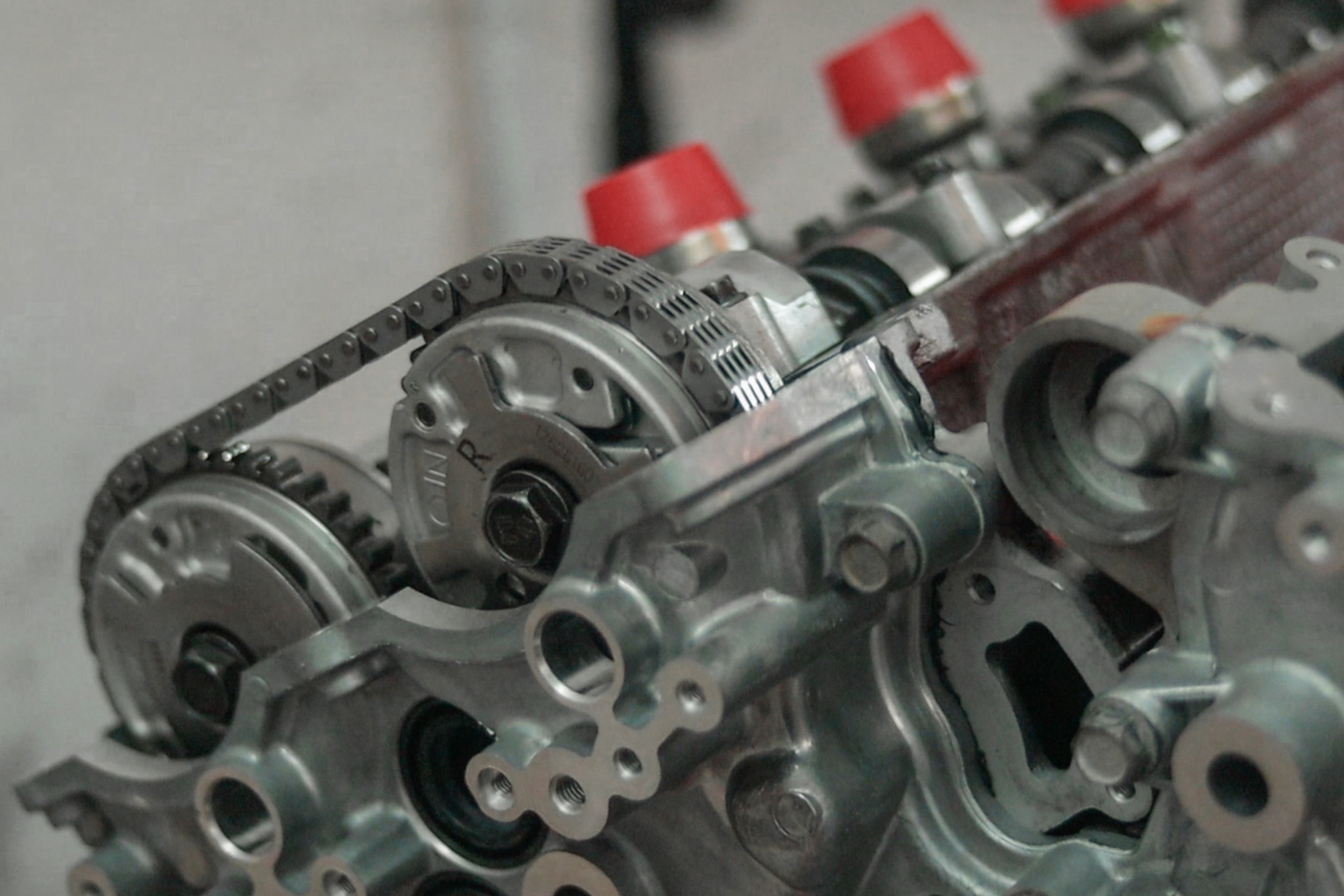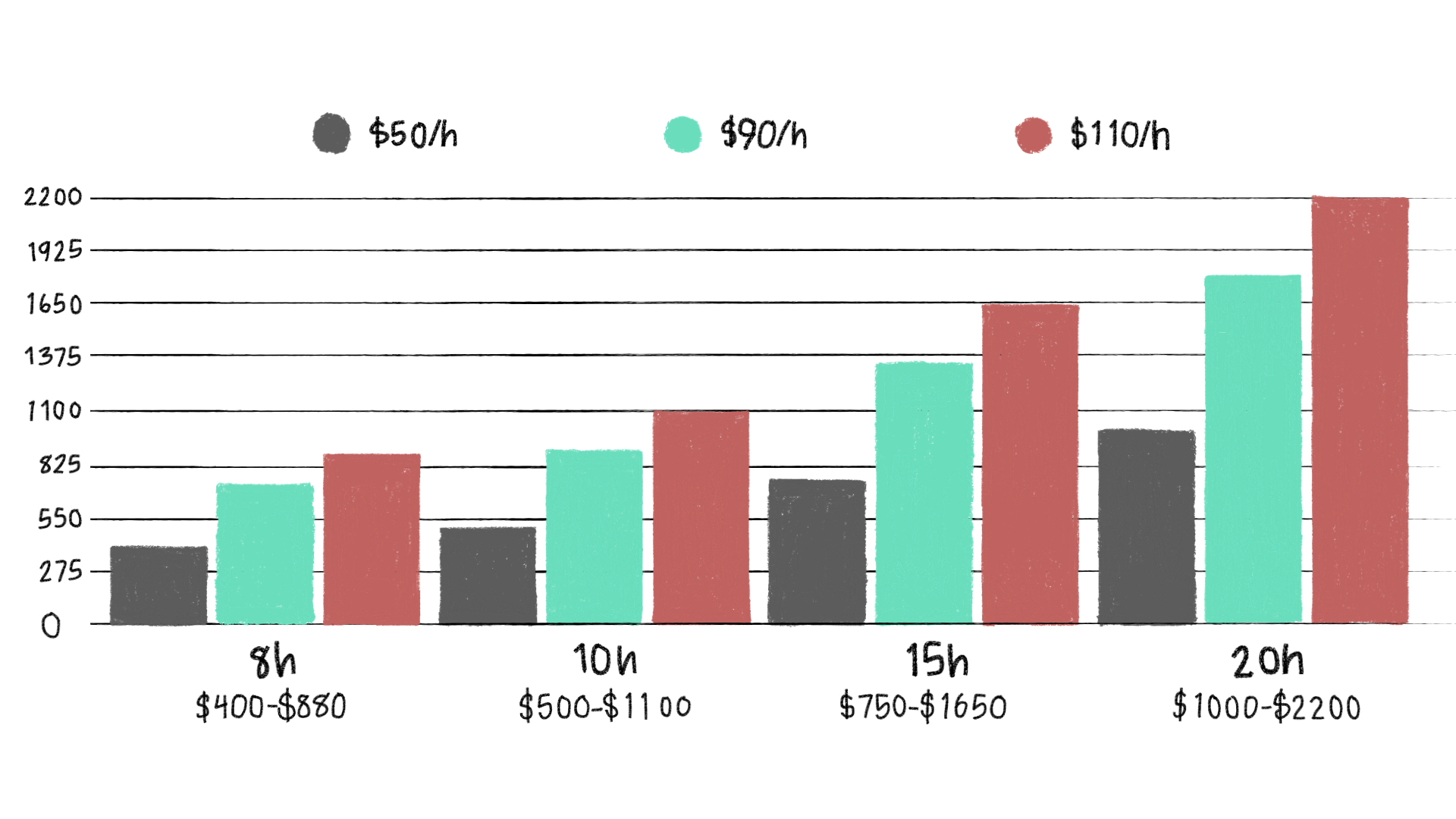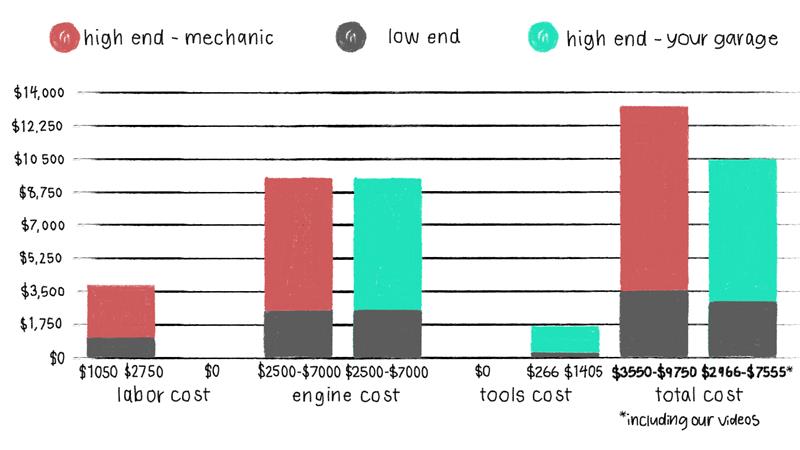Counting the Cost
We have argued that it’s better to replace your engine than to replace your car if the engine dies. We also told you that it’s cheaper to swap your engine by yourself at home. Now we’ll prove it. We’ll compare the cost of engine replacements at the shop versus in your garage.
Cost of an Engine
The first expense in an engine swap is a replacement engine itself. When it comes to buying an engine, you have lots of options. It’s good to know the difference between them. Let’s look at used engines, remanufactured engines, and new engines.
Used Engines
Used engines are your cheapest option, and it’s not a mystery why that is. They have been running in a different car with all the mileage and wear and tear that entails.
Also, you can find them at the salvage yard. Used engines are usually installed without first having been repaired. You must be very careful in selecting one of these. You want to look out for mileage, warranty and parts.
Depending on when its previous car stopped running, a used engine could have a lot of miles. These miles won’t line up with your car’s mileage gauge, which could become an issue if you decide to sell it at some point.
Warranties for used engines are good for 30 days, tops. You wouldn’t want to run into some major repair after a month, when it runs out. These engines range in price from $400-$3000.
In our opinion, this engine is your least valuable option.

New Engine
New engines are also called crate engines. Available at the dealer, these expensive engines sometimes cost more than the vehicle itself.
Though the price may be prohibitive, a reason you would buy a new engine is its availabity, versus a remanufactured engine. For example, the engine for a high performance car or an older, collectible vehicle may only be available new.
A disadvantage is its untested nature. New engines’ blocks haven’t been through the process of heating and reheating, and settling, like the remanufactured engines have.
New engines range in price from $4000 for a low-end 4-cylinder engine, to well over $100,000 for a rare, hand built, or high performance engine.
This option is the most expensive, and it’s unnecessary outside of the special exceptions we listed.
Remanufactured Engines
Remanufactured engines are also called rebuilt, remaned, or reconditioned engines. These used engines have been restored to factory specifications. Most of their working parts have been replaced. For all intents and purposes, these are like-new engines with no mileage. These cost less than a brand new engine, but have the same quality of parts.
Remanufactured engines also have the advantage of having a seasoned engine block.
Seasoned engine blocks have been used for a few years, and have stood the test of repeated heat cycling. This causes the block to settle, and makes a stronger block than a freshly cast one. The block is more “relaxed’ than a new one that has yet to go through this process.
These engines are tested for reliability and durability. They range in price from $2500-$4000.
For our money, the remanufactured engine is the best value.
Cost of Mechanic Labor for an Engine Swap
Our mechanic quoted us $7500 for an engine replacement. That was $2500 for the engine, and $5000 for labor costs. The engine had 120,000 miles on it. To spend thousands of dollars on mechanic fees for an engine that was already halfway gone did not seem worth it.
What you can expect to pay per hour for the mechanic depends on their experience and confidence.
The lowest rate we found is $70/hr; the higher estimates are $90-$200/hr. So the cost to replace your engine in the shop would vary widely from $1050, if the mechanic charged $70/hr and only took 15 hours to complete the swap, to $4000, if the mechanic charged $200/hr and took 20 hours to finish.
Here are our calculations for the pricing estimates according to the time of the job and how much you might pay per hour:

Labor costs can run from $70/hr-$110/hr, and these are estimates for the labor based on the the average quotes hours to complete an engine swap run from 8-20. (Gray is $70/hr, teal is $90/hr, red is $110/hr)
Cost of Replacing an Engine Yourself
When you do it yourself, you immediately eliminate the per hour costs of an engine swap, but you will need to spend some money on tools, depending on what you have to start with. It would be hard to say exactly what you need to spend on basic auto repair tools, because you probably already have many of the tools you need.
Cost of Tools
We’ve categorized the tools into two groups: Essential tools, and non-essential, but nice to have tools. You will spend $266.12 for the essential tools, and $1405 for the nice to have tools. Find the complete list here.
Is There Actually Money Saved?
So, do you actually save money replacing an engine yourself? You’d spend $2500-$7000 for an engine, and $266-$1405 in tools, + $159 for our video, you’d be out $2766-$7405 if you’re replacing your engine yourself.
If you go with a mechanic, you’ll spend $1050-$2750 in labor+ $2500-$7000 on an engine, for a total of $3550-$9750.
The chart below illustrates this better.

This chart breaks down the costs involved in an engine swap. The red bars represent the auto shop, and the green bars represent your garage.
So yes, you do save money on swapping an engine yourself.
If you can change your oil, you can learn to swap your engine. Buy our video.
